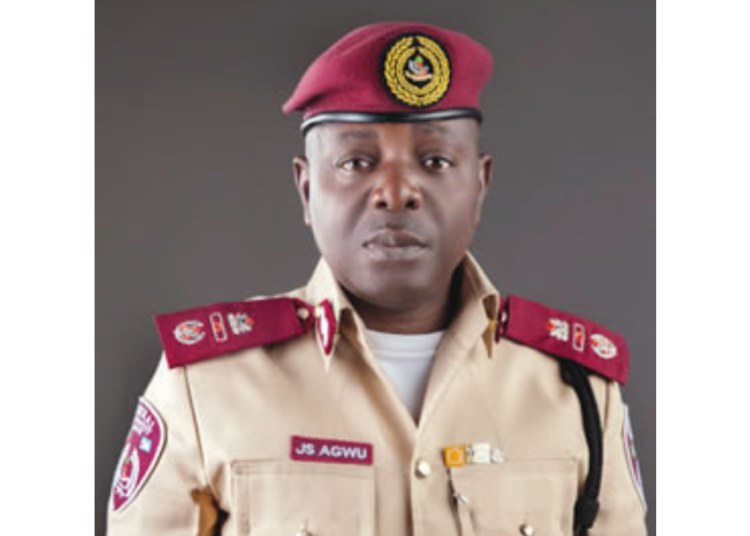On Thursday, August 10, 2023, I was elated when my boss, Deputy Corps Marshal Kayode Fanola invited me to a presentation by a team on a passive safety device they claim is sustainable, safe, durable and viable. The presentation anchored by a young man from Chile was equally enthralling.
While he was talking, my memory flashed to the United Nations drive for countries to promote forgiven roads as the antidote for stopping fatalities and injuries on our roads. These are roads engineered to tolerate human inadequacies and vulnerabilities.
The concept of forgiving roads which has already taken roots in some developed clime fascinates me. This is because the concept is central to the safe system approach. The logic is that despite known interventions to address rising cases of fatalities globally, human errors are inevitable and should be accommodated through road design.
What this implies is that the road should be designed to allow room for remedying these errors. The road design therefore should aim to limit the severity of a crash to avoid fatalities and injuries. Globally, these deaths and injuries stand at 1.35million annually, meaning 3700 deaths are recorded daily.
The concept of forgiving road is encompassing. It is not restricted to just road design but also involves vehicle design.It also includes personal protection devices which was part of the focus of the presentation. Before I continue, please allow me to dwell briefly on one of the worrying risk factors which is speed.
Speed remains the number one killer. Speed management is therefore an integral part of a safe system. It therefore requires regulating speed to levels commensurate with the environment. To reduce deaths and injuries according to the concept, the human body tolerance to impact forces is used as a guiding tool.
This explains while speed is regulated. It therefore underscores why the United Nations is spearheading forgiving speed in built up areas. This was mentioned when I dealt with the issue of redressing speed induced road traffic crashes. Today, speed in built up areas has been reduced to 30km/ph from 50km/ph although in our clime, I am not sure of States that have taken the appropriate steps to accelerate full implementation.
It is however, exciting to know that the National Council of Works under the Chairmanship of former Housing and Works Minister, Raji Babatunde Fashola adopted this in 2022 during the Council meeting in Kano. In the case of prevention of fire or explosion, the concept recommends the design of quick response and evacuation as critical components for road safety.
Forgiving road is not my focus for this week. I deliberately chose to refresh our memory on the global strategy to redress rising fatalities .My real focus is to share what I was taught in my training days in road safety. I am talking about the ‘unforgiving road’. The simple truth is that the road we travel daily no matter the clime is extremely patient but never forgiving.
What this means is that no matter your rascality behind the wheels through all kinds of traffic infractions, if caution is not applied, that same road that patiently watches you display your ‘odi-eshi’ attitude will someday end your dreams and aspirations. Let me take you back to the issue of excessive speeding.
Daily, road users are cautioned against speed because of the inherent dangers yet we are ignored. Some would even accuse us of being jobless .Others would brag in the words of my brother, Patrick Adenusi that they drive American spec SUVs with multiple airbags forgetting that the combined airbag and seatbelt saves only when you drive by the rules.
Yet some others would boast of their connections in high places while others would threaten, assault and even shoot you for daring to stop and caution them against bad driving habits. There is still another group that brags in their possession of hidden powers that saves in the event of a crash. All these speed freaking groups forget that behind every death through a road traffic crash, is excessive speed.
Before I continue, please allow me to share this material on road safety. It is an old material and also a long read but I assure you that you will find its contents used verbatim worthwhile.The Publication starts by painting the picture of what we see daily on some roads. According to the publication, worried by the excessive speed by rod users, ‘’The determined residents dug holes in the new road to force vehicles to slow down, even as the town was engulfed in teargas fumes’’.
It notes that the above story illustrates the serious disconnect between the apparent good intentions of governments and well-meaning donors to provide efficient transportation (and reduce poverty), and the resulting carnage due to the reckless neglect of safety in the development and construction of these roads.
The publications further notes that surely every phase of road development could use more accountability to the populations that have to grieve their dead children. While government inefficiency and at times blatant corruption stand in the way of safer roads, donors need to demand results, not just in terms of extended road networks, but reduced road injuries and deaths. That is sustainable development.
The above piece titled, ‘A disconnect between good intentions and reckless neglect’, is culled from the Make Road Safe-A Decade of Action for Road Safety Publication. The feature write up is credited to Dr Olive Kobusingye, an independent consultant and former WHO Regional Office for Africa Advisor for violence and injury prevention.
Also in that same publication, is a piece titled, ‘’ The world is turning a blind eye’’, written by Kevin Watkins, a Senior Research Fellow at the Global Economic Governance Programme, Oxford University. He is a former director of the UN Human Development Report Office and was previously Head of Resources for Oxfam, UK.’’
The publication stresses the need for the world to find a new vocabulary to discuss the road crisis. ‘’Pick up any newspaper in the developing country and you are virtually guaranteed to find a headline story somewhere about a’ road accident’ that has killed people and shattered lives’’, it observes. It clarifies that,’’ these events are not ‘accidents’. They are the consequence of bad policies, of government neglect, and of the indifference of the international community’’. To me they are as a result of wrong usage of both the road and vehicles. These views and many more were expressed years before the United Nations flagged off the Decade of Action on Road Safety on May 11, 2011.
I have chosen to run these as I focus on road safety and the road conditions. Some years ago, I had a discussion with some media friends who said they could not hold back their disgust over the state of our roads. Like most motorists, the journalists concurred that crashes occur because the roads are bad. Fix the road, they concluded and the crashes will disappear.
At campaigns, workshops or even media events, the song is the same; bad roads are responsible for all the crashes. I don’t know if you share the same views? What do you think about some of our roads? I am sure that some readers will have their mouthful. What do you think others think about our roads?
The piece by Olive speaks volume. So does that by Kevin all contained in the Publication. What do you think developed societies such as the US and UK think about the state of our roads? According to the United State of America government, ’’Roads in many areas of Nigeria are generally poor in condition, causing damage to vehicles and contributing to hazardous traffic conditions. Additionally, some traffic control officers may occasionally seek to obtain bribes when citing drivers for traffic violations.
Excessive speed, unpredictable driving habits, lack of basic maintenance and safety equipment on many vehicles, and the absence of any official inspection for road worthiness present additional hazards. Motorists seldom yield the right-of-way and give little consideration to pedestrians and cyclists, they opine.
Public transportation vehicles, such as buses and motorcycles are unsafe due to poor maintenance, high speed and overcrowding. Motorbike taxis, known in Nigeria as ‘’okadas’’ offer a common form of public transportation in many cities and pose particular danger to motorists, their passengers, and pedestrians, they further stress.
We’ve got the edge. Get real-time reports, breaking scoops, and exclusive angles delivered straight to your phone. Don’t settle for stale news. Join LEADERSHIP NEWS on WhatsApp for 24/7 updates →
Join Our WhatsApp Channel










